A brief history of crime, corruption, and malfeasance at American banks
The business of Wall Street is fraud

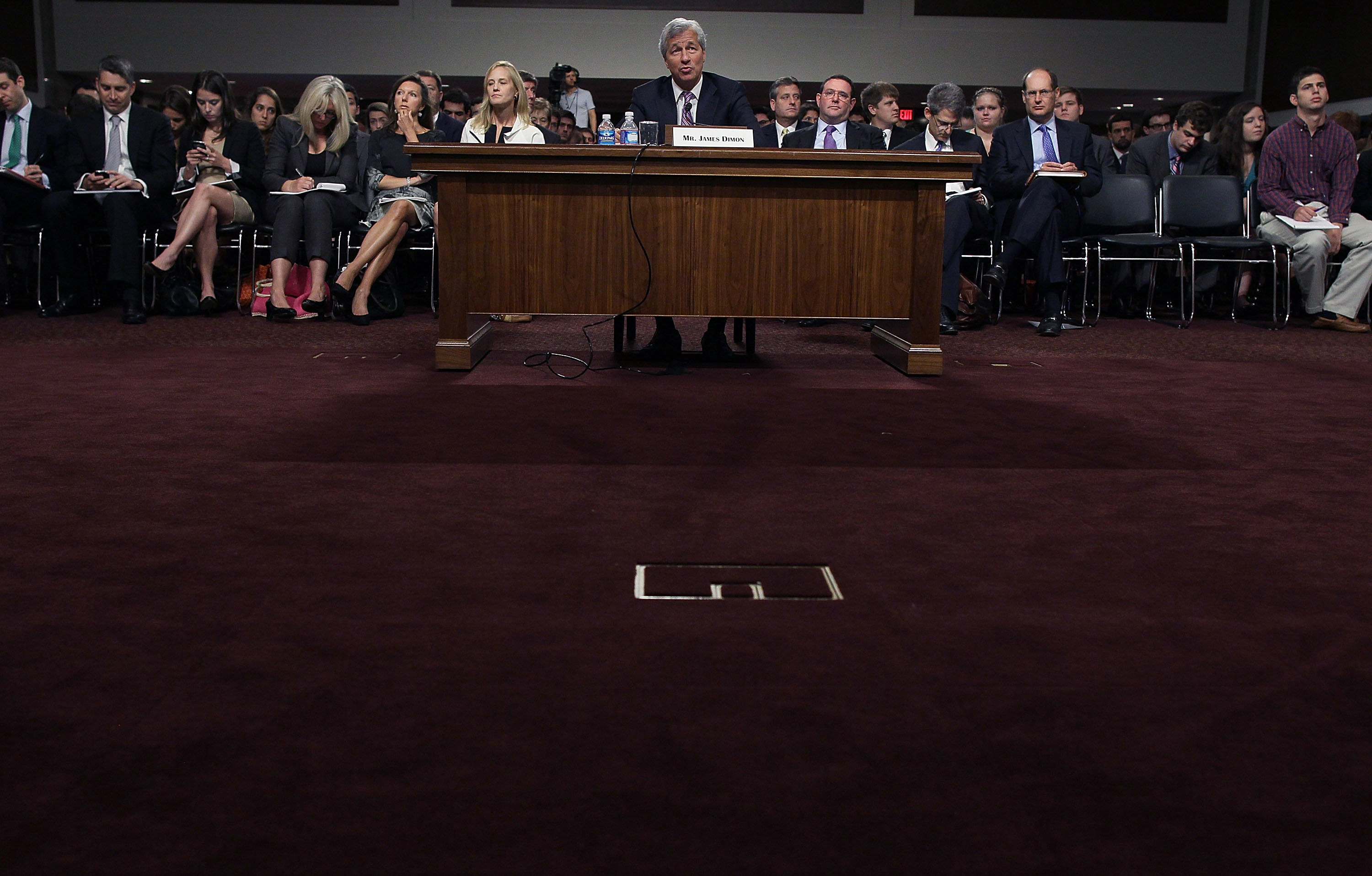
A free daily email with the biggest news stories of the day – and the best features from TheWeek.com
You are now subscribed
Your newsletter sign-up was successful
Since the foreclosure crisis that swept the nation after the 2008 crash, America's biggest banks have been involved in a never-ending spree of abuse, scams, and crime.
The latest allegation comes from indefatigable housing reporter David Dayen. This time it is about America's largest bank, JPMorgan Chase, and how it apparently gamed the 2012 mortgage settlement.
That wrist-slap was a $25 billion deal involving most of the major banks, where they agreed to pay a combination of fines and mortgage relief to avoid prosecution over a "robosigning" fraud scheme that affected millions of American homeowners. JPMorgan's share was $5.3 billion, of which $4.2 billion was allocated for relief. With another settlement mandating $4 billion in relief, the bank was supposed to cough up $8.2 billion in total relief. But according to Dayen, JPMorgan never really took the full hit. Instead the bank ran what he called "an elaborate shell game" with mortgage relief and "came out hundreds of millions of dollars ahead," by allegedly using mortgages it had already sold as credit towards its relief total. It's a miscarriage of justice, to say the least.
The Week
Escape your echo chamber. Get the facts behind the news, plus analysis from multiple perspectives.

Sign up for The Week's Free Newsletters
From our morning news briefing to a weekly Good News Newsletter, get the best of The Week delivered directly to your inbox.
From our morning news briefing to a weekly Good News Newsletter, get the best of The Week delivered directly to your inbox.
But it's also worth remembering that the settlement itself was a grotesque miscarriage of justice. In a sane world, many top executives and dozens if not hundreds of lower-level employees would have gone to prison for the systematic document fraud. Yet, as Jesse Eisinger details in his excellent book The Chickenshit Club, President Obama's Department of Justice and his U.S. attorneys were generally too lazy or too scared to prosecute big white-collar crimes. Instead, they preferred "no admit, no deny" deferred prosecution agreements, in which prosecutors didn't have to press complicated cases, gigantic banks paid a nominal fee and swore to make changes to fix the problem (a promise which was often violated instantaneously), and case closed.
Over the past decade, this kind of settlement was reached over and over and over again without seemingly any change of behavior. Let's roll a (highly abridged) tape of the five biggest banks, just covering settlements over $100 million since the financial crisis, compiled by the Corporate Research Project:
JPMorgan Chase (assets: $2.55 trillion)
2009: The bank settled with the Securities and Exchange Commission for $75 million in fines and $647 million in disclaimed fees over allegedly bribing officials in Jefferson County, Alabama.
A free daily email with the biggest news stories of the day – and the best features from TheWeek.com
2010: It agreed to a $6 billion settlement with the Federal Deposit Insurance Corporation and $208 million in a class-action settlement over disputes dealing with its purchase of Washington Mutual.
2011: JPMorgan settled another class-action lawsuit for $100 million over allegations that it tricked credit card customers into higher fees and interest rates.
2012: It agreed to a $297 million SEC settlement for allegedly misleading investors.
2013: JPMorgan agreed to a $410 million settlement with the Federal Energy Regulatory Commission over allegedly rigging electricity markets; two of its traders were charged with securities fraud by the SEC over the London Whale case, for which it settled for $920 million divided between the SEC, the British Financial Conduct Authority, the Office of the Comptroller of the Currency, and the Federal Reserve, and with the Commodity Futures Trading Commission for $100 million in a separate settlement; it shared a $300 million class-action lawsuit settlement with another company for allegedly forcing homeowners into expensive insurance; it was fined $20 million plus forced to refund $309 million in fees by the Consumer Financial Protection Bureau over allegedly illegal credit card practices; it paid $4.5 billion to settle yet another class-action lawsuit over allegedly misleading investors; it agreed to a $13 billion settlement with the Justice Department over allegations of mortgage and securities fraud connected to the financial crisis; it was fined about $108 million over allegedly rigging the LIBOR inter-bank interest rate; and it agreed to a $1.7 billion settlement with the Department of Justice over allegedly enabling Bernie Madoff's Ponzi scheme.
2014: JPMorgan was nailed by four different regulators for rigging the foreign exchange market: fined $350 million by the OCC, fined $310 million by the CFTC, fined $352 million by the British FCA, and fined $550 million plus a felony guilty plea by the Department of Justice.
2015: It was fined $342 million by the Federal Reserve, as part of the same foreign exchange scam; it was fined $136 million by the CFPB, $30 million by the OCC, and ordered to pay $50 million in refunds over allegedly selling bad credit card debt and document fraud; it agreed to a $267 million settlement with the SEC and to pay $40 million to the CFTC over allegedly misleading investors.
2016: It was again hit by multiple regulators over allegedly bribing Chinese officials: fined $72 million by the Department of Justice, fined $264 million by the SEC, and $61 million by the Federal Reserve.
Bank of America (assets: $2.25 trillion):
2010: Bank of America agreed to a $108 million settlement with the Federal Trade Commission over alleged fraud associated with the financial crisis; it agreed to a $150 million settlement with the SEC over an alleged failure to disclose losses; and it agreed to a $137 million settlement with the Justice Department for allegedly rigging the municipal bond market.
2011: It paid $315 million to settle a class-action lawsuit over allegedly misleading investors; it agreed to a $335 million settlement with the Justice Department over alleged lending discrimination done by a bank it had bought; it settled with Fannie and Freddie for $2.8 billion over allegedly selling faulty loans.
2012: Bank of America paid $2.43 billion to settle another class-action lawsuit about allegedly misleading investors.
2013: It settled for $165 million with the National Credit Union Administration over alleged bad loans; it agreed to a $131 million SEC settlement over allegedly misleading investors; it paid Fannie $3.6 billion and agreed to buy back $6.75 billion in alleged bad loads, and it settled with Freddie Mac for $404 million over the same thing.
2014: The CFPB ordered the bank to pay $727 million over allegedly illegal credit card practices; it was fined $204 million by the Federal Reserve for allegedly rigging foreign exchange markets; and it agreed to a $16.65 billion Justice Department settlement (the largest single-company settlement in history) over alleged mortgage and securities fraud connected with the financial crisis.
2016: It agreed to a $415 million SEC settlement and to admit wrongdoing for illegally trading with customer deposits.
Wells Fargo (assets: $1.95 trillion):
2009: The bank agreed to buy back $1.4 billion in mortgage securities in a settlement with California over allegedly misleading investors.
2010: It agreed to provide $2 billion more in relief to California.
2011: Wells Fargo agreed to a $148 million settlement with the Justice Department over alleged municipal bond rigging done by a bank it had bought (to which was added a later $37 million settlement on Wells Fargo itself); it paid $125 million to settle a class-action lawsuit over allegedly misleading investors.
2012: The bank agreed to a $175 million settlement with the Justice Department over allegedly racist lending practices.
2013: It agreed to pay Freddie Mac $869 million over allegedly bad loans.
2016: Wells Fargo agreed to a $1.2 billion settlement with the Justice Department over allegedly illegal mortgage lending; and it was fined $100 million by the CFPB for illegally opening two million secret credit card and deposit accounts for its customers, according to its own internal analysis (it later found 1.7 million more accounts).
Citigroup (assets: $1.82 trillion):
2011: The bank agreed to a $285 million settlement with the SEC over alleged securities fraud; it paid $158 million in a civil settlement over allegedly defrauding the government's mortgage insurance programs.
2012: It paid $590 million to settle a class-action suit over allegedly misleading investors.
2013: Citigroup paid $730 million to settle another class-action lawsuit over allegedly misleading investors; it paid $968 million to Fannie Mae and $395 million to Freddie Mac over alleged bad mortgage loans.
2014: The bank paid $1.13 billion to settle yet another class action lawsuit over allegedly misleading investors; it agreed to a $7 billion settlement with the Department of Justice over allegedly misleading investors about toxic mortgage securities; it was nailed by two different regulators for allegedly rigging foreign exchange markets: $310 million by the Commodities Futures Trading Commission, $358 million by the British Financial Conduct Authority.
2015: Two more regulators hit Citigroup for rigging foreign exchange markets: $925 million plus a guilty plea by the Department of Justice, and $342 million by the Federal Reserve; it was fined $700 million by the CFPB over allegedly illegal credit card practices; and finally it was fined $175 million by the CFTC for allegedly rigging two key inter-bank interest rate benchmarks.
Goldman Sachs (assets: $894.1 billion):
2010: This bank agreed to a $550 million settlement with the SEC over the notorious ABACUS deal, in which it allegedly colluded with trader John Paulson to create a security filled with toxic loans that Paulson could bet against, then sold it to a German bank without disclosing Paulson's involvement.
2013: Goldman agreed to a $330 million settlement with the Federal Reserve over alleged foreclosure abuses.
2014: It agreed to pay Fannie and Freddie $3.15 billion in a settlement with the Federal Housing Finance Authority over alleged securities fraud.
2016: The bank agreed to a $5 billion settlement with the Department of Justice over allegedly misleading investors; it was fined $120 million by the CFTC for allegedly rigging benchmark interest rates.
This jaw-dropping list leaves out literally dozens of smaller fines and settlements with the government and private businesses and individuals. And yet, all of these banks remain wildly profitable. Finance accounts for about 8 percent of GDP and something like one-third of corporate profits. All these fines, even taken together, are basically a drop in the bucket — indeed, given how top law enforcement has worried about financial instability in the case of personal prosecutions, it's highly likely that these settlements are designed to not exceed the banks' ability to pay.
If we want Wall Street to stop committing so many crimes, perhaps it's time to start personally punishing the perpetrators — and reducing the massive size of these institutions.
Ryan Cooper is a national correspondent at TheWeek.com. His work has appeared in the Washington Monthly, The New Republic, and the Washington Post.
-
 6 of the world’s most accessible destinations
6 of the world’s most accessible destinationsThe Week Recommends Experience all of Berlin, Singapore and Sydney
-
 How the FCC’s ‘equal time’ rule works
How the FCC’s ‘equal time’ rule worksIn the Spotlight The law is at the heart of the Colbert-CBS conflict
-
 What is the endgame in the DHS shutdown?
What is the endgame in the DHS shutdown?Today’s Big Question Democrats want to rein in ICE’s immigration crackdown
-
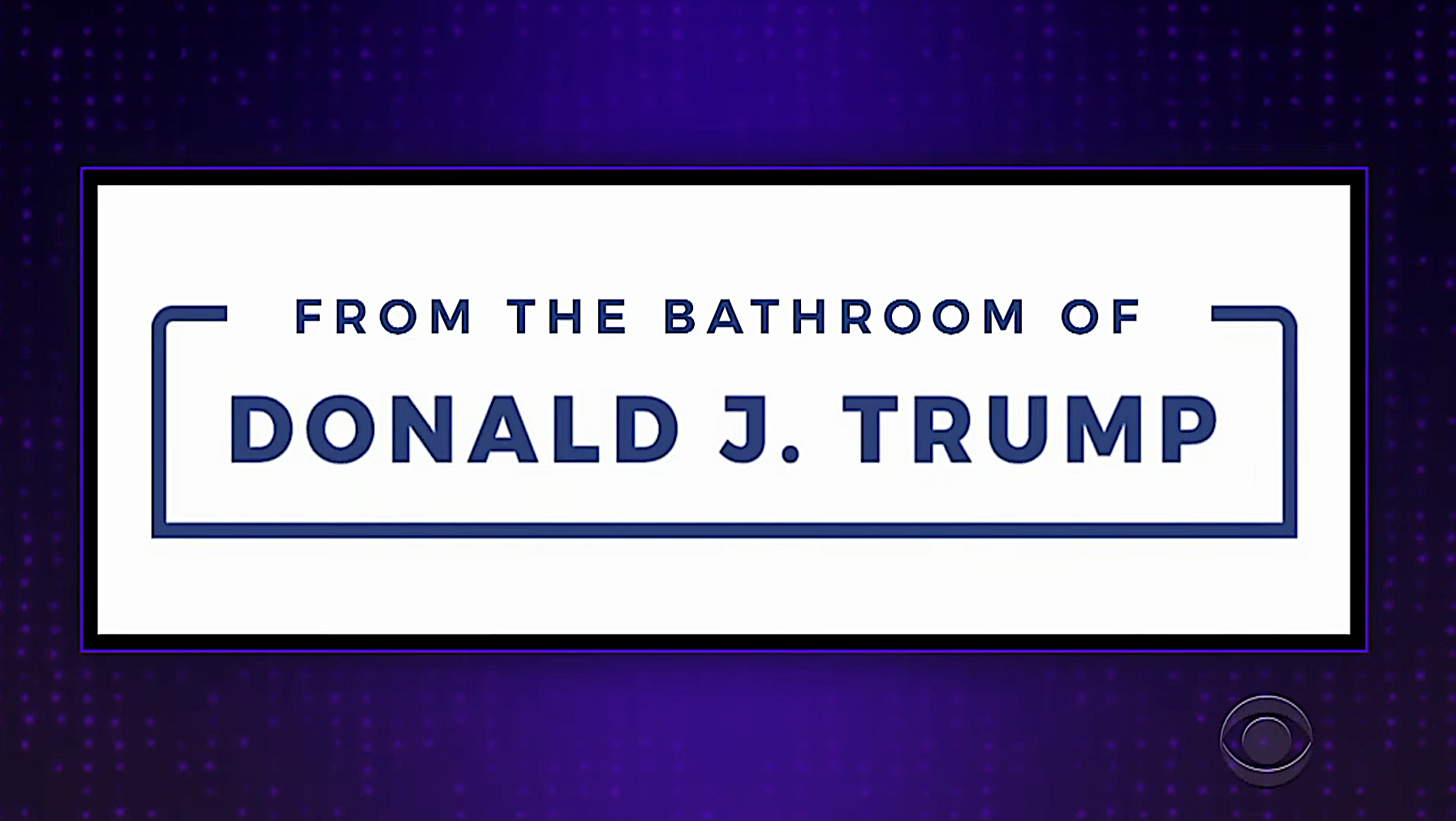 Late night hosts joke about Trump's forced exodus from Facebook to blog
Late night hosts joke about Trump's forced exodus from Facebook to blogSpeed Read
-
 Fox News admits Biden doesn't actually want to cancel meat. Late night hosts pounce anyway.
Fox News admits Biden doesn't actually want to cancel meat. Late night hosts pounce anyway.Speed Read
-
 Manhattan D.A. will stop prosecuting sex workers, not their clients, pimps, or sex traffickers
Manhattan D.A. will stop prosecuting sex workers, not their clients, pimps, or sex traffickersSpeed Read
-
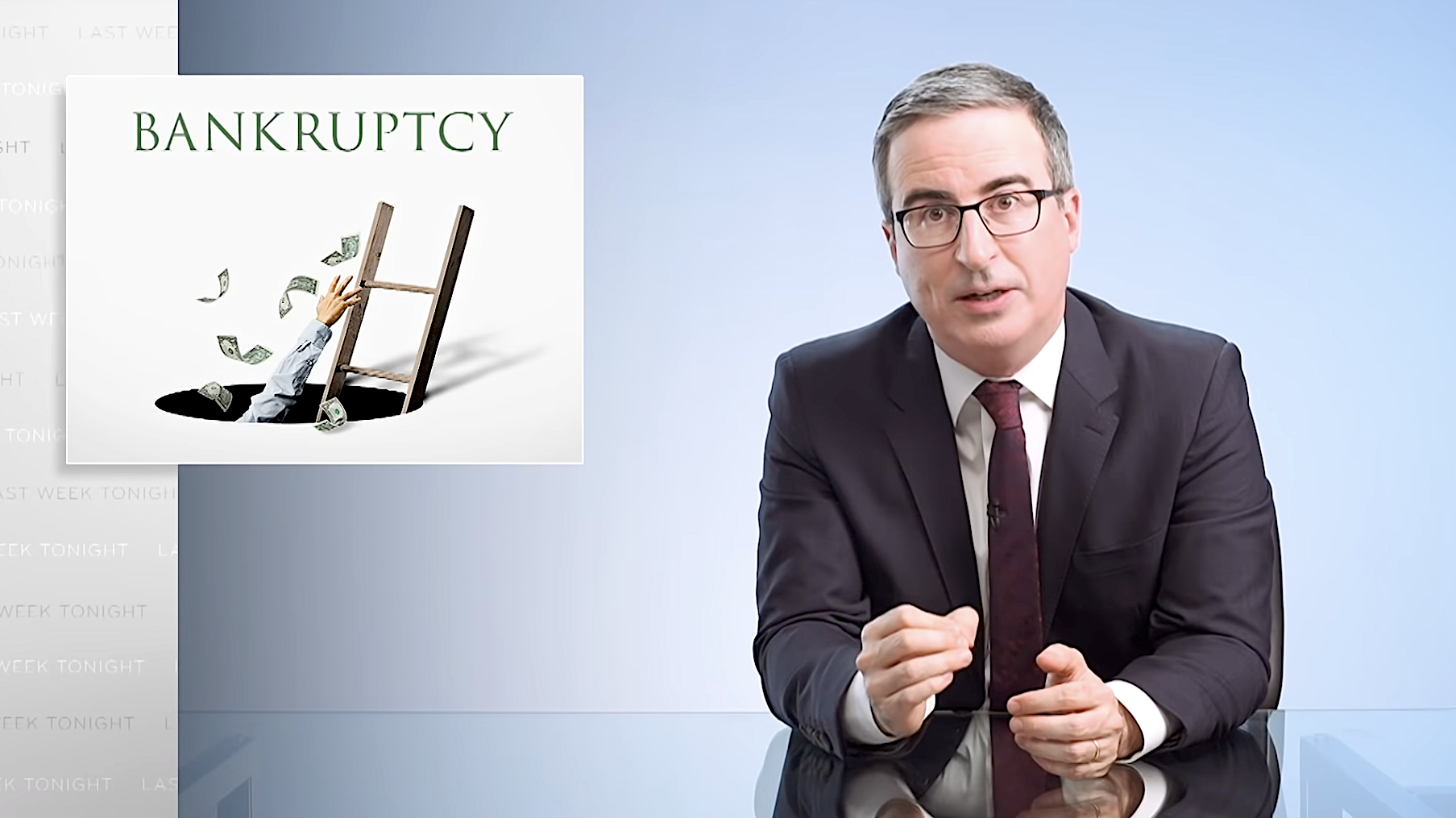 John Oliver explains personal bankruptcy, how credit card lobbyists and lawyers make it much worse
John Oliver explains personal bankruptcy, how credit card lobbyists and lawyers make it much worseSpeed Read
-
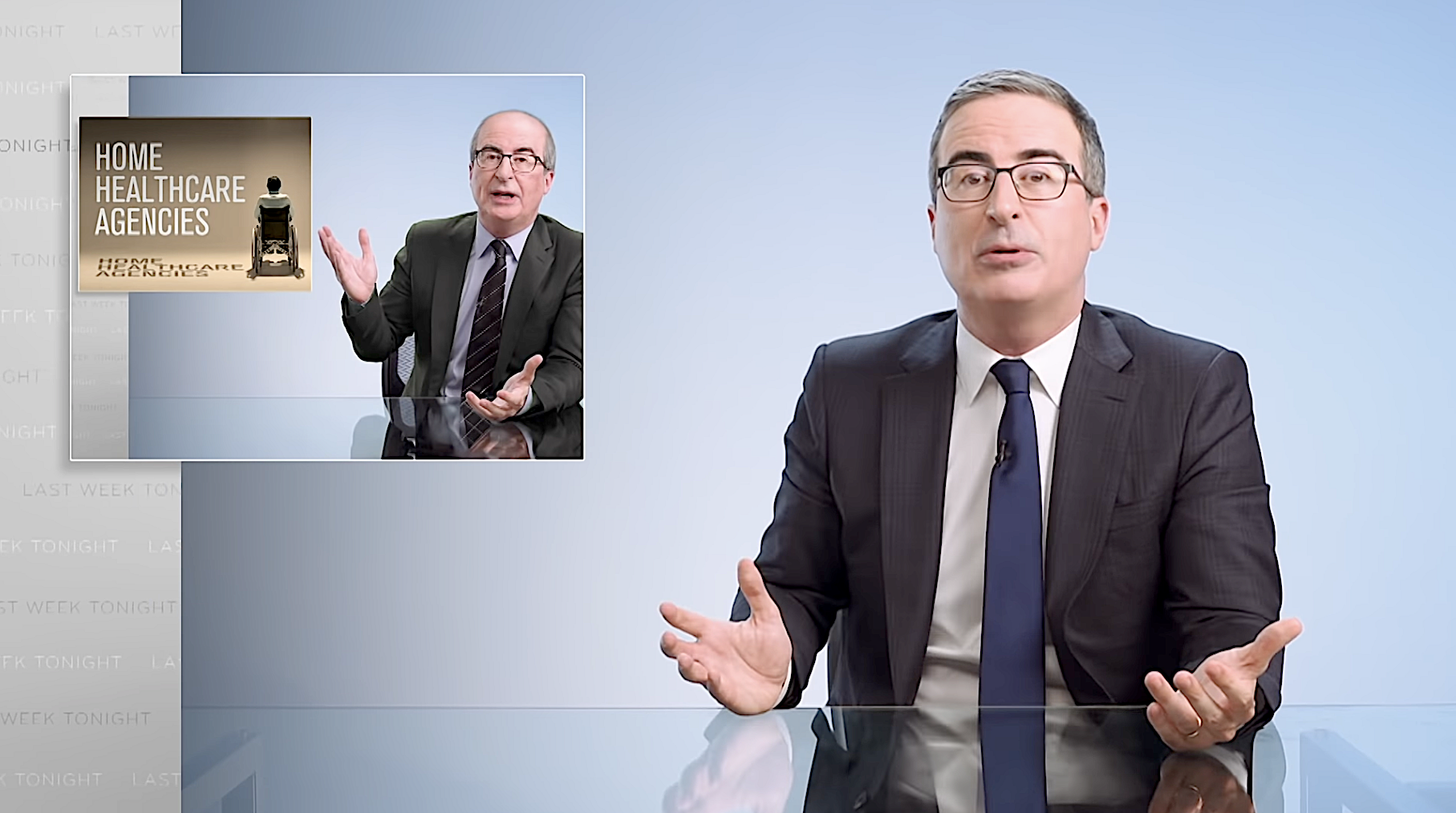 John Oliver explores problems with U.S. nursing homes and long-term care, suggests you pay attention
John Oliver explores problems with U.S. nursing homes and long-term care, suggests you pay attentionSpeed Read
-
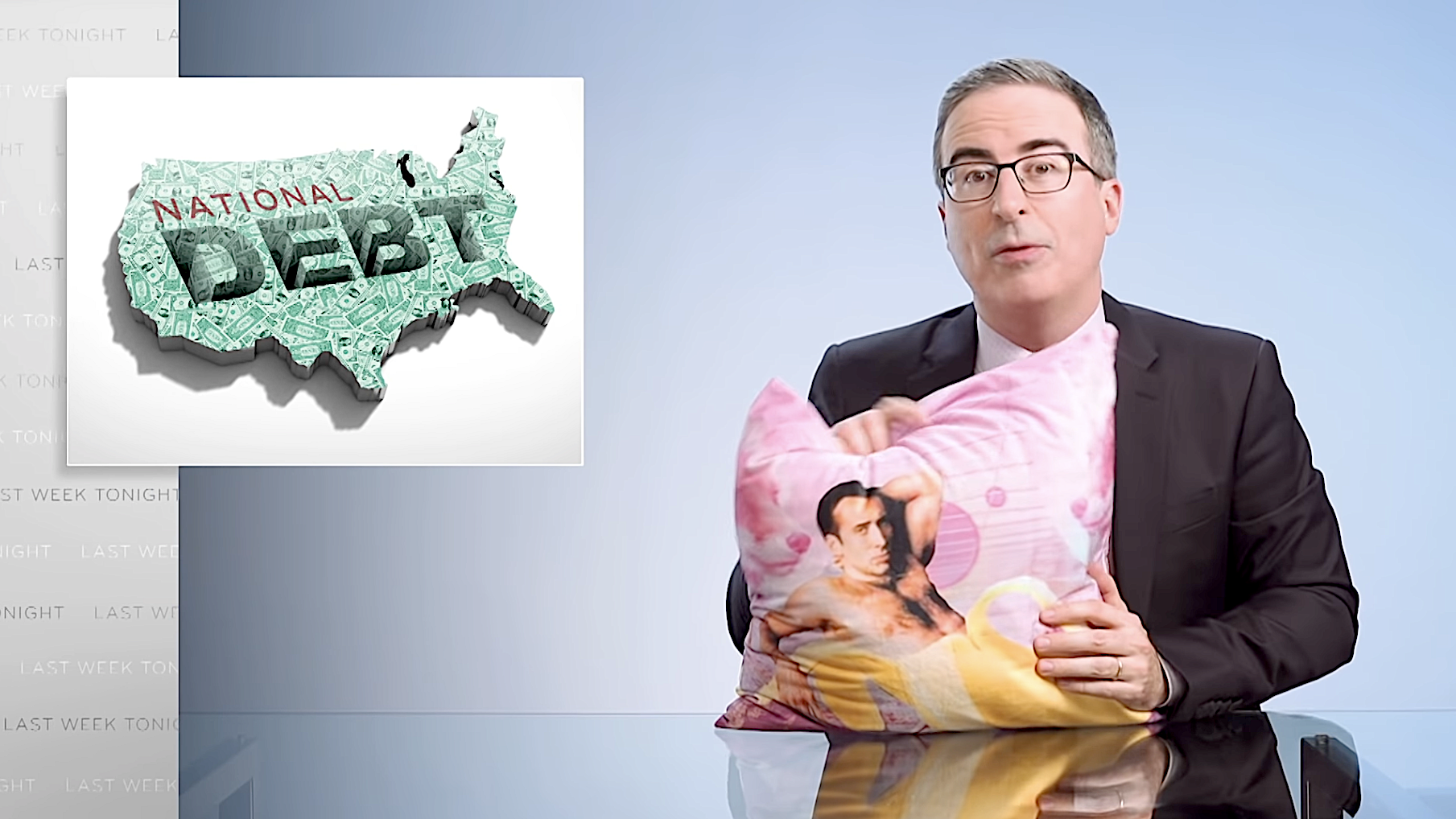 John Oliver tries to explain whether you should worry about the enormous U.S. national debt
John Oliver tries to explain whether you should worry about the enormous U.S. national debtSpeed Read
-
 Late night hosts laugh at the giant ship blocking the Suez Canal, chide Fox News for fake Kamala Harris scandal
Late night hosts laugh at the giant ship blocking the Suez Canal, chide Fox News for fake Kamala Harris scandalSpeed Read
-
 Utah governor signs bill requiring porn blocking on all new smartphones and tablets
Utah governor signs bill requiring porn blocking on all new smartphones and tabletsSpeed Read
